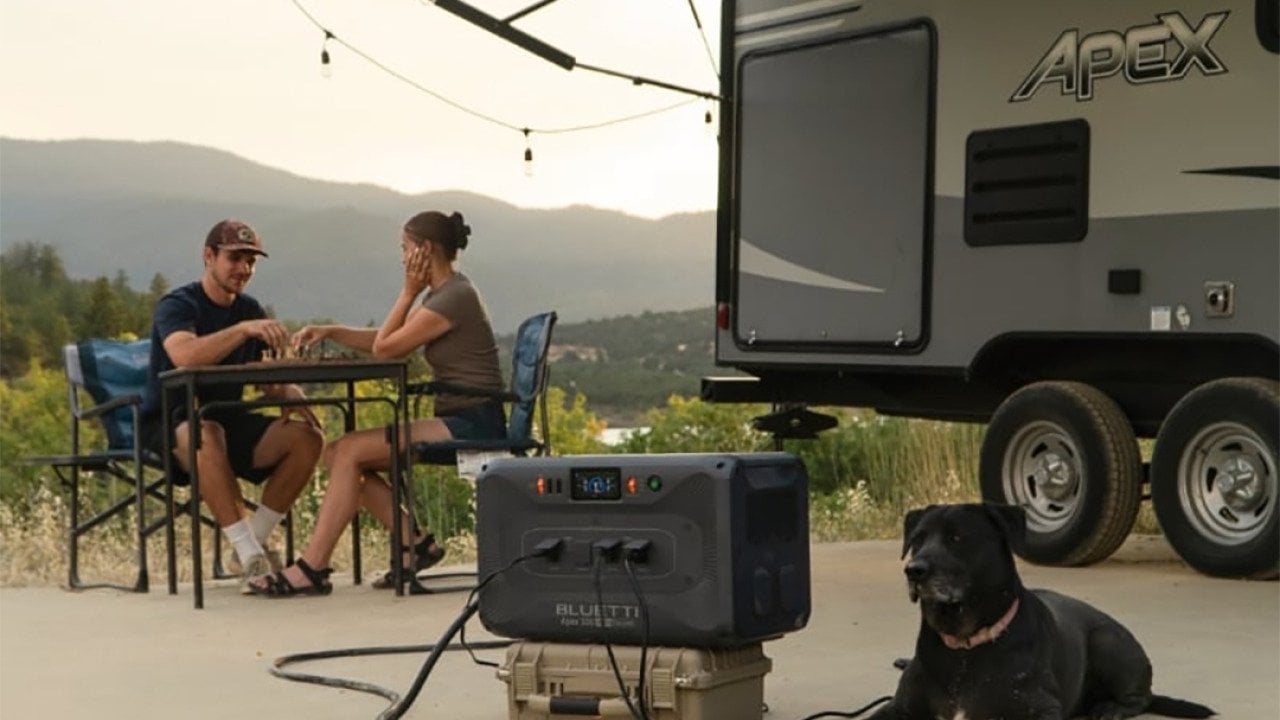How to be safer when using portable power stations

BLUETTI
How to be safer when using portable power stations
As summer heats up, the demand for portable power rises. Blackouts, hurricanes, and heatwaves are becoming more frequent — hot-season outages have jumped nearly 60% in the past decade, according to Climate Central. BLUETTI notes that the current hurricane season and peak outdoor travel underscore energy challenges users face at home and on the road. At home, they rely on continuous power for essentials like fridges, air conditioning, and medical devices; on the road, RV and outdoor enthusiasts focus on DC power safety and reliable outlets. This article looks at smart, sustainable, and safe energy choices this summer.
Why Portable Power Safety Matters More Than Ever
Summer means more portable power use, but it also brings new risks. From recalls to fires and overheating, especially with gas generators and cheaper batteries, safety can’t be ignored. As blackouts and extreme weather push electricity demand higher, the question becomes: What does it really mean to stay safe when using portable power every day?
Shared Safety Principles for Home and On-the-Go Power
Avoid Gas Generators in Enclosed Spaces
Gas generators, while widely used, pose serious risks in enclosed spaces. Carbon monoxide (CO) poisoning is a silent killer, making proper ventilation essential. To stay safe:
- Never use a gas generator indoors, even in garages or partially enclosed areas.
- Install CO detectors in your home, especially if you use a gas generator.
Choose Safer Batteries, Like LiFePO₄ with Built-In BMS
When it comes to portable power, not all batteries are created equal. Lithium iron phosphate (LiFePO₄) batteries are a safer, more reliable option. Here’s why:
- Thermal Stability: LiFePO₄ batteries are less prone to overheating or catching fire compared to other lithium-ion batteries.
- Built-In Safety Features: These batteries come equipped with a Battery Management System (BMS) for:
- Overcharge and over-discharge protection.
- Overcurrent and short-circuit protection.
- Over-temperature protection.
By investing in high-quality batteries, you can reduce the risks of power-related accidents.
Safety-First Design in Portable Power
Portable power isn’t just about being portable and light — safety matters even more. That’s why more manufacturers are using reinforced materials in their newest portable power stations, ensuring they’re reliable and durable whether at home or in challenging situations. Examples of these materials include:
- Thicker metal structures: Ensuring durability and safety.
- Industrial-grade handles: Designed for heavy-duty use.
- Fire-resistant materials: Using UL 94 5VA-rated shells made from aerospace-grade materials.
The added sturdiness from these materials provides users with confidence in reliability and safety, even during demanding summer conditions.
Home Backup Power: What to Prioritize
Home backup power is critical during blackouts. Here’s what to consider for a flexible and reliable system:
Solar + Battery + Generator Backup
Combining these three power sources creates a resilient and eco-friendly system:
- Solar Panels and Batteries: Studies show homes with solar-plus-battery systems can limit power losses to just 2–3% of annual energy use (especially during wildfire-related outages) while keeping average electricity costs below $0.30 per kWh, providing more reliable power when it matters most.
- Generators: Provide a flexible fallback when fuel is available in prolonged blackouts.
Built-in UPS Functionality
A home battery backup system with Uninterruptible Power Supply (UPS) functionality ensures that essential devices like CPAP machines, computers, and security systems stay powered during outages, offering peace of mind.
Scalable Backup Systems
Expandable battery systems allow you to adapt to higher energy demands or longer outages. You can start small and scale up as needed.
U.S. Solar Tax Credit Nears Its End
The 30% Federal Residential Solar Tax Credit (Section 25D), which applies to home battery backups over 3 kWh, will expire after December 31, 2025. With demand expected to rise before the deadline, now is a key window to consider qualified solutions — not only to reduce upfront costs but also to help manage energy use and keep summer electricity bills in check.
Portable Power for Outdoor Use
Summer adventures often call for portable power solutions. Here’s what to look for:
Built Tough for Outdoor Adventures
Choose products designed for rugged environments:
- Heat Dissipation: Keeps the system cool during high-temperature use.
- Weather Resistance: Look for an IP65 rating to protect against water and dust.
- Impact Resistance: Ensures durability for camping, hiking, and road trips.
Fire-Safe Solar Power
Portable solar panels are a practical solution for outdoor use, providing clean and renewable energy with minimal fire and heat emissions.
Safe Portability and Power Compatibility
Look for compact units with high energy density and standardized outlets, such as:
- NEMA TT-30 Plugs: The NEMA TT-30 plug, common in RVs and trailers, meets standards for safety, durability, and outdoor use.
- AC Outlets and USB-C Ports for powering a variety of devices.
- 24V / 12V DC Outlets: For power camping essentials like portable fridges, LED lighting, Starlink, and Wi-Fi routers
Summer Starts with Smart Power Preparedness
Global temperatures have been breaking records, and so has demand for portable power. Whether it’s for camping now or using the expiring federal clean energy tax credit to prepare home battery backup during hurricane season, true safety relies on informed decisions, trusted technology, and proactive preparedness.
This story was produced by BLUETTI and reviewed and distributed by Stacker.
![]()



